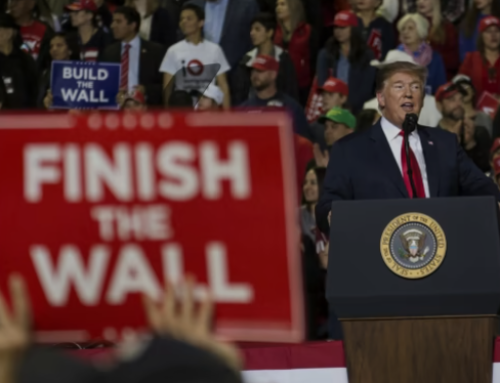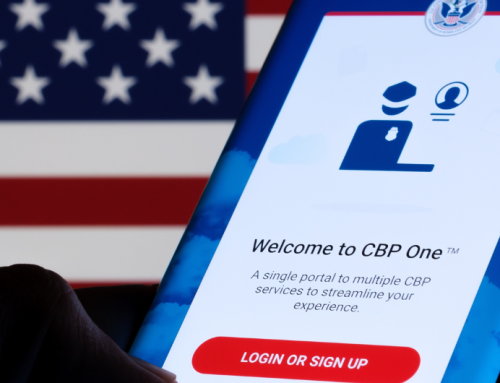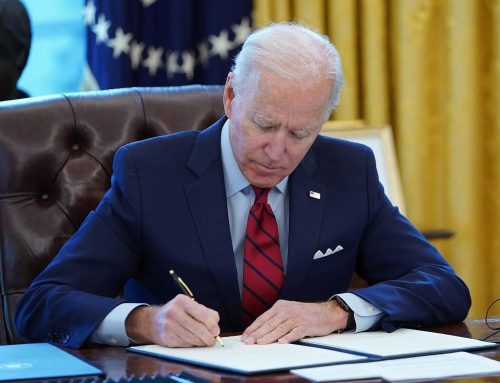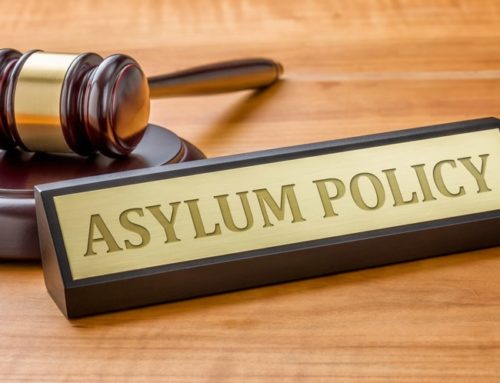USCIS Announces Final Rule to Support Family Unity During Waiver Process
On January 2nd, 2013, U.S. Citizenship and Immigration Services (USCIS) announced that certain immediate relatives of U.S. citizens present in the United States, who are in the process of seeking immigrant visas with the Department of State to become lawful U.S. permanent residents, may apply and be approved for provisional unlawful presence waivers before departing the United States to attend their immigrant visa interviews. USCIS will begin accepting provisional unlawful presence waivers on March 4th, 2013.
This development comes after USCIS published a proposed rule to amend its regulations on April 2, 2012. Under current law, immediate relatives of U.S. citizens who are not eligible to adjust status in the United States to become lawful permanent residents, usually because they entered the country unlawfully, must leave the U.S. and obtain an immigrant visa abroad. Individuals who have accrued more than six months or one year of unlawful presence while in the United States must obtain a waiver to overcome the 3- or 10- year unlawful presence inadmissibility bar before they can return to the United States after departing to obtain an immigrant visa. In order to obtain a waiver, the applicant must prove extreme hardship to their U.S. citizen relatives. Under the existing waiver process, which remains available to those who do not qualify for the new process, immediate relatives cannot file a waiver application until after they have appeared for an immigrant visa interview abroad and the Department of State has determined that they are inadmissible. As such, the process is generally time-consuming and lengthened the amount of time families were apart.
The new rule will streamline the process for immediate relatives of U.S. citizens, because they will not have to depart the U.S. until they have received notification that their waiver application has been “provisionally” approved, which means that they will be able to complete their visa processing in one step rather than two or three at the embassy. Other applicants will continue to follow the standard process, including immediate relatives who may need other waivers for final approval of their Lawful Permanent Resident (LPR) status.
This final rule implements the provisional unlawful presence waiver process. The Department of Homeland Security (DHS) anticipates that these changes will significantly reduce the length of time U.S. citizens are separated from their immediate relatives who engage in consular processing abroad. DHS also believes that this new process will reduce the degree of interchange between the U.S. Department of State (DOS) and USCIS and create greater efficiencies for both the U.S. Government and most provisional unlawful presence waiver applicants.
However, DHS reminds the public that the filing or approval of a provisional unlawful presence waiver application will not confer any legal status, protect against the accrual of additional periods of unlawful presence, authorize an alien to enter the United States without securing a visa or other appropriate entry document, convey any interim benefits (e.g., employment authorization, parole, or advance parole), or protect an alien from being placed in removal proceedings or removed from the United States in accordance with current DHS policies governing initiation of removal proceedings and the use of prosecutorial discretion.
The U.S. Department of State published the following guidelines about the new process.
If you would like to apply for a provisional unlawful presence waiver, please take the following steps:
STEP A – Review the Provisional Unlawful Presence Waiver News Release on the USCIS Website to decide if you might meet the requirements. If you meet the requirements, you may choose to apply for the provisional unlawful presence waiver in accordance with the instructions on the USCIS webpage.
STEP B – Notify the National Visa Center (NVC) or Post: Before applying for the I-601A, you must notify NVC if you choose to seek a provisional unlawful presence waiver and have a pending immigrant visa case at NVC. If you do not notify NVC, your case may be scheduled for interview at a U.S. embassy or consulate abroad. If NVC has scheduled your immigrant visa appointment, you must notify the immigrant visa processing post where your appointment has been scheduled before applying for the provisional waiver.
NOTE: Applicants with an interview appointment letter from the National Visa Center dated before January 3rd, 2013 are not eligible to file the I-601A. Only applicants scheduled by the National Visa Center on or after January 3rd, 2013 for an upcoming initial immigrant visa interview are eligible to apply for the I-601A. “Scheduled” means the date on which NVC took the action to schedule the case – not the date of the visa interview appointment. NVC dates interview appointment letters on the day it schedules a case, so refer to the appointment notification letter to see when NVC took the scheduling action.
1. When do I notify the NVC or post?
Notify NVC immediately after you have paid the immigrant visa-processing fee and before you apply for the provisional unlawful presence waiver. NVC will schedule your immigrant visa interview after USCIS has finished processing your provisional waiver application.
For cases at the U.S. Embassy or consulate: If NVC has scheduled you for an immigrant visa appointment and you are eligible to apply for the I-601A, you must notify the immigrant visa processing post where your appointment has been scheduled before applying for the provisional waiver. Once USCIS finishes processing your provisional waiver, you may contact post to reschedule your immigrant visa appointment.
2. How do I notify the NVC?
If you need to contact the National Visa Center, please email [email protected].
- Enter your NVC Case Number or USCIS Receipt Number in the Subject Line of the email.
- Provide the applicant’s name and date of birth and the petitioner’s name and date of birth.
- Provide the attorney of record’s name, law firm, and address (if applicable).
- Include a statement that the applicant is applying for the provisional unlawful presence waiver with USCIS.
3. What does my notification to the NVC do?
Your notification directs the NVC not to schedule your immigrant visa interview appointment until USCIS has processed your provisional unlawful presence waiver application.
4. What happens if I forget to notify the NVC?
If you do not notify NVC, your case may be scheduled for interview at an overseas post, which will delay processing of your immigrant visa application once USCIS has finished processing your provisional unlawful presence waiver application.
5. What will happen during the visa interview at the U.S. embassy or consulate if the consular officer determines that I have other visa ineligibilities?
If the consular officer determines at your immigrant visa interview that you have other ineligibilities (grounds of inadmissibility or are otherwise not eligible for the visa) beyond unlawful presence, the USCIS approved provisional waiver is automatically revoked.
For more information, visit the USCIS Website: www.uscis.gov/provisionalwaiver.
Attorneys at I.S. Law Firm have helped many immigrants to legalize or adjust their status in the United States, as well as obtain U.S. citizenship. Please contact us for a consultation today: +1-703-527-1779 or via e-mail: [email protected].






